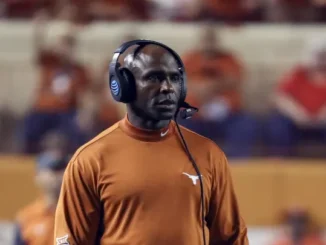In a surprising turn of events, Arch Manning, the highly touted quarterback and scion of the Manning football dynasty,
has been dismissed from his position, despite his considerable efforts and contributions to his team. This decision marks a dramatic shift in the landscape of college football, stirring discussions across the sport.
Arch Manning, a freshman at the University of Texas, entered the collegiate football scene with immense expectations. As a highly recruited player from a prestigious football family, his arrival was anticipated with great excitement. However, the recent announcement of his departure has raised many eyebrows and led to a flurry of speculation about the reasons behind this significant decision.
The official statement from the university cited “differences in coaching philosophy and team direction” as the primary reasons for Manning’s departure. While specifics were not detailed, it appears that a misalignment between Manning’s style of play and the coaching staff’s strategic approach led to the decision. Manning, known for his strong arm and dynamic playmaking abilities, may have faced challenges in adapting to the coaching staff’s preferred system, which could have contributed to the decision to part ways.
Despite the abrupt end to his stint at Texas, Manning’s tenure was not without its merits. His work ethic and dedication were evident in practice sessions, and he was praised for his leadership qualities and commitment to the team. However, the high-stakes nature of college football often requires swift adjustments and alignment between players and coaches, and when this alignment falters, difficult decisions can ensue.
The fallout from Manning’s departure has been significant. Fans and analysts are speculating about the impact on the Texas Longhorns’ upcoming season and the potential implications for Manning’s future. While his exit from Texas is a setback, it is important to remember that Manning remains a highly talented player with considerable potential. His next steps will likely involve seeking opportunities where his skills and playing style are better suited to the team’s needs.
In the broader context, Manning’s dismissal underscores the volatile nature of college football, where even the most promising players can face unexpected challenges. For Manning, this is an opportunity to reassess his career path and seek environments where he can thrive and continue his football journey.
As the situation continues to evolve, both Manning and Texas will move forward, with Manning looking to new opportunities and Texas adjusting its strategy to align with its coaching vision. The sports community will undoubtedly follow Manning’s next move with keen interest, eager to see how this talented quarterback adapts and progresses in his athletic career.



Be the first to comment